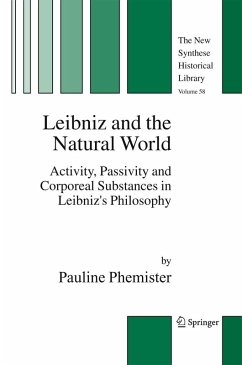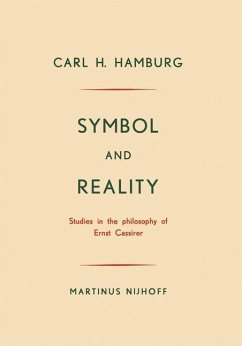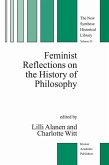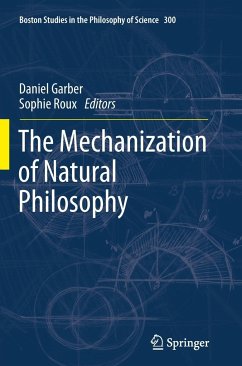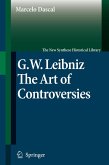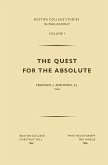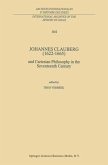In the present book, Pauline Phemister argues against traditional Anglo-American interpretations of Leibniz as an idealist who conceives ultimate reality as a plurality of mind-like immaterial beings and for whom physical bodies are ultimately unreal and our perceptions of them illusory. Re-reading the texts without the prior assumption of idealism allows the more material aspects of Leibniz's metaphysics to emerge. Leibniz is found to advance a synthesis of idealism and materialism. His ontology posits indivisible, living, animal-like corporeal substances as the real metaphysical constituents of the universe; his epistemology combines sense-experience and reason; and his ethics fuses confused perceptions and insensible appetites with distinct perceptions and rational choice. In the light of his sustained commitment to the reality of bodies, Phemister re-examines his dynamics, the doctrine of pre-established harmony and his views on freedom. The image of Leibniz as a rationalist philosopher who values activity and reason over passivity and sense-experience is replaced by the one of a philosopher who recognises that, in the created world, there can only be activity if there is also passivity; minds, souls and forms if there is also matter; good if there is evil; perfection if there is imperfection.
"[Leibniz and the Natural World] lives up admirably to its ambitious aims. [...] in arguing for her main thesis, Phemister also provides an original and fascinating approach to two formidable challenges in Leibniz's scholarship. [...] There is much more to be found in this rich book, which any serious student of Leibniz's metaphysics should study." (Ohad Nachtomy, Bar-Ilan University, Israel, in British Journal for the History of Philosophy 16:1, 2008)
"[...] Phemister's book is a defiant attempt to free Leibniz from the fetters of this misinterpretation, and her eloquent arguments will do much to turn the tide in favour of a more balanced assessment of his natural philosophy." (Richard Arthur, McMaster University, Ontario, Canada, in The Philosophical Quarterly 57:226, 2007)
"Phemister's book is a clear and insightful study [...], and deserves the attention of everyone who wishes to appreciate Leibniz in all his depth and range." (Justin E.H. Smith, Concordia University, Canada, in The Leibniz Review Vol. 16, 2006)
"[...] Phemister's book is a defiant attempt to free Leibniz from the fetters of this misinterpretation, and her eloquent arguments will do much to turn the tide in favour of a more balanced assessment of his natural philosophy." (Richard Arthur, McMaster University, Ontario, Canada, in The Philosophical Quarterly 57:226, 2007)
"Phemister's book is a clear and insightful study [...], and deserves the attention of everyone who wishes to appreciate Leibniz in all his depth and range." (Justin E.H. Smith, Concordia University, Canada, in The Leibniz Review Vol. 16, 2006)
"[Leibniz and the Natural World] lives up admirably to its ambitious aims. [...] in arguing for her main thesis, Phemister also provides an original and fascinating approach to two formidable challenges in Leibniz's scholarship. [...] There is much more to be found in this rich book, which any serious student of Leibniz's metaphysics should study." (Ohad Nachtomy, Bar-Ilan University, Israel, in British Journal for the History of Philosophy 16:1, 2008)
"[...] Phemister's book is a defiant attempt to free Leibniz from the fetters of this misinterpretation, and her eloquent arguments will do much to turn the tide in favour of a more balanced assessment of his natural philosophy." (Richard Arthur, McMaster University, Ontario, Canada, in The Philosophical Quarterly 57:226, 2007)
"Phemister's book is a clear and insightful study [...], and deserves the attention of everyone who wishes to appreciate Leibniz in all his depth and range." (Justin E.H. Smith, Concordia University, Canada, in The Leibniz Review Vol. 16, 2006)
"[...] Phemister's book is a defiant attempt to free Leibniz from the fetters of this misinterpretation, and her eloquent arguments will do much to turn the tide in favour of a more balanced assessment of his natural philosophy." (Richard Arthur, McMaster University, Ontario, Canada, in The Philosophical Quarterly 57:226, 2007)
"Phemister's book is a clear and insightful study [...], and deserves the attention of everyone who wishes to appreciate Leibniz in all his depth and range." (Justin E.H. Smith, Concordia University, Canada, in The Leibniz Review Vol. 16, 2006)

